

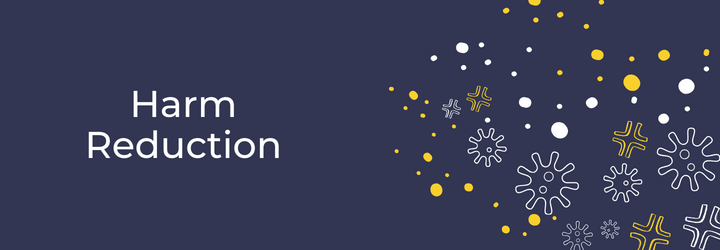
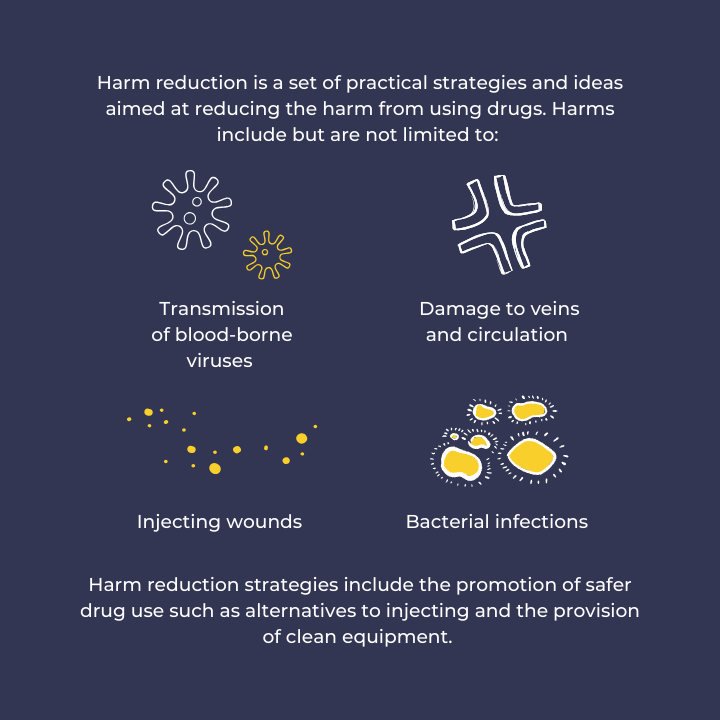
Harm Reduction Services
Harm reduction services recognise that management and reduction of drug-related harm is an option if someone does not chooses to or does not feel able to eliminate drug use entirely. In Tayside we have a range of harm reduction services available including a specialist nursing team, access to Medication Assisted Treatment (MAT) through Alcohol and Drug Services and Injecting Equipment Provision (IEP) also known as needle exchange.


Tayside Harm Reduction/Blood-Borne Virus (BBV) Nursing Service provides specialist nursing input and support to people who inject drugs (PWID) across Tayside.
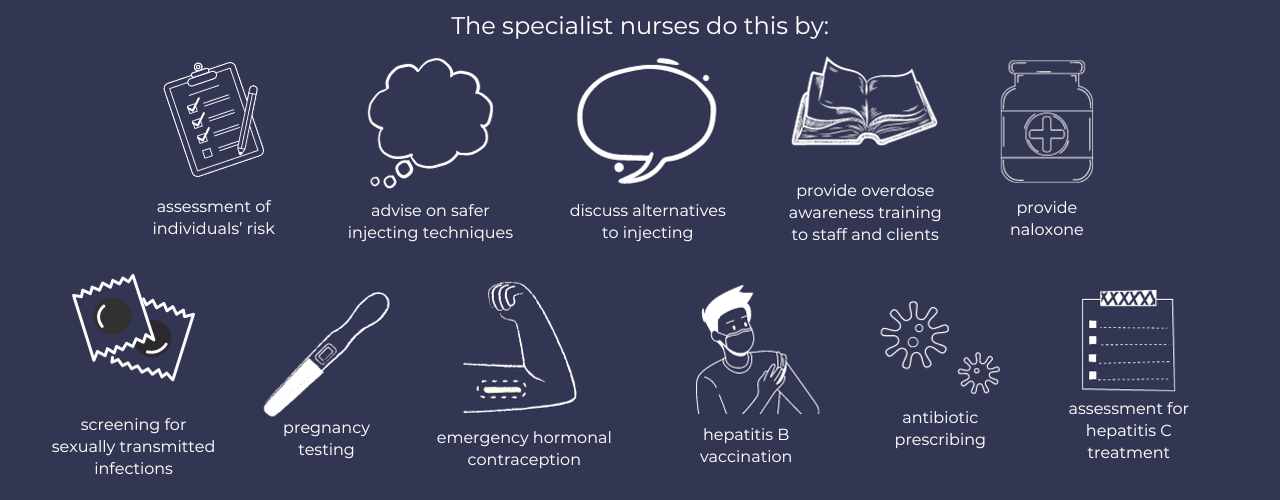
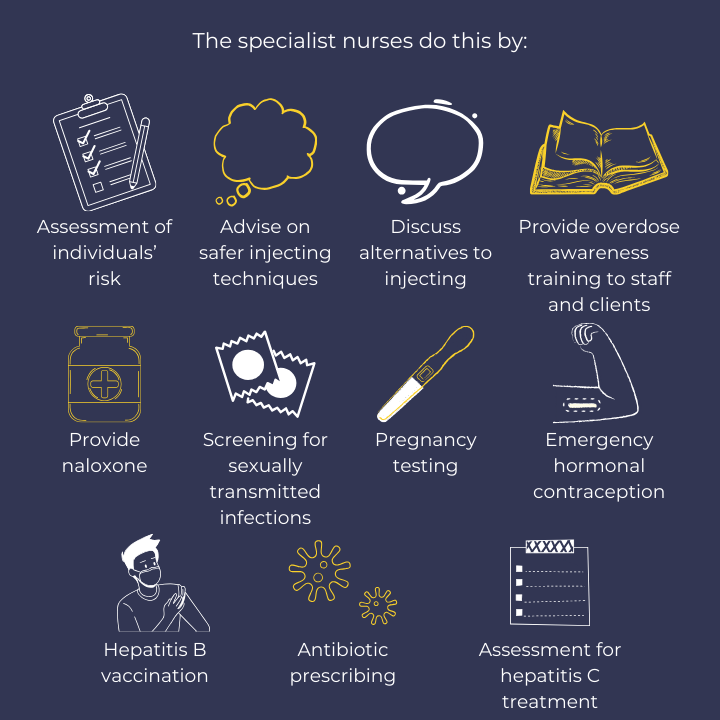
Injecting Equipment Provision (IEP)
Injecting Equipment Provision (IEP) provides people who inject drugs with; clean needles, syringes and other injection paraphernalia such as water and citric acid. These services were previously known as Needle Exchanges.
There are a number of health risks associated with injecting drug use: 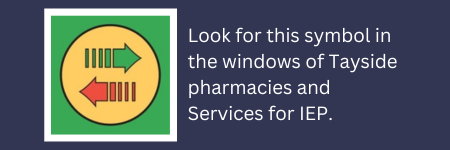
- abscesses
- cellulitis
- collapsed veins (injecting with a blunt needle, overuse of injecting sites)
- increased risk of getting a blood-borne virus (BBV), particularly Hepatitis C.
Naloxone saves lives
Naloxone is an opioid antagonist; a drug which can temporarily reverse the effects of a potentially fatal overdose involving opioid drugs such as heroin, morphine, or methadone.
It is a first aid emergency response to overdose. When used, it provides more time for emergency services to attend and medical care to be given. Individuals using drugs, family, friends, and people in the community can be supplied with ‘take-home’ Naloxone (THN) kits. This is offered along with training on how to administer Naloxone and overdose awareness to reduce the risk of death. Naloxone is widely available across the city, both as part of the ‘take-home’ scheme and within a wide range of services.
There are two options for Take Home Naloxone in Tayside
- Prenoxad – an intramuscular preparation (syringe contains five doses)
- Nyxoid – a nasal spray (pack contains two single use nasal sprays)
For more information about training and carrying Naloxone please click the link HERE
Near-Fatal Overdose Rapid Response and Assertive Outreach
In 2019, Dundee established a multi-agency team to provide a rapid response to all known near-fatal overdoses (NFO) and support individuals who have experienced a NFO to access services quickly. The team meets every weekday and contacts each individual who has experienced a NFO within 72 hours. Assertive outreach workers reach out to people in their own environment and offer support to help them engage with treatment services and other support services they may need. This could include but not limited to, access to housing, food banks, social support, benefit agencies, GP services and medical treatment.
